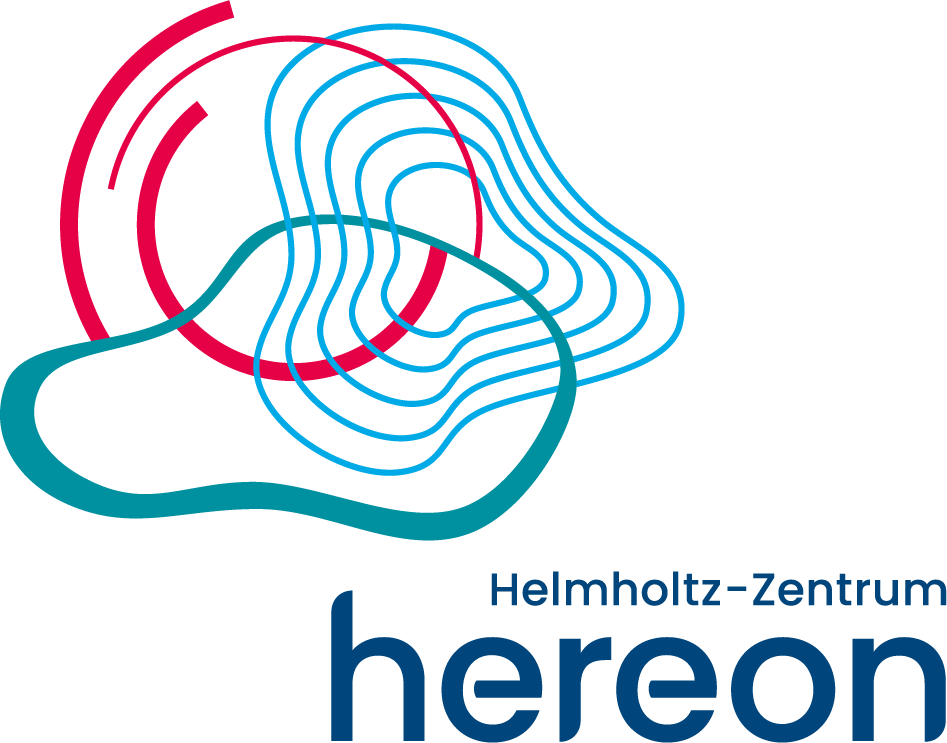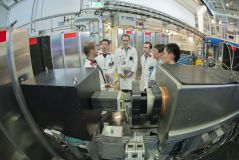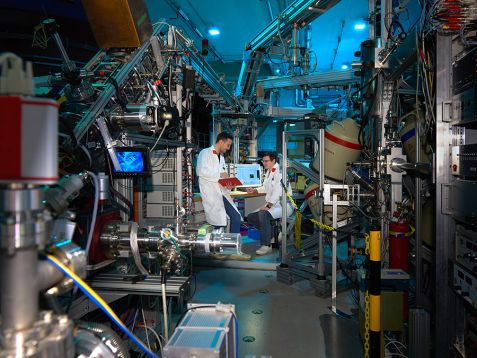MLZ is a cooperation between:
 > Technische Universität München
> Technische Universität München > Helmholtz-Zentrum Hereon
> Helmholtz-Zentrum Hereon
 > Forschungszentrum Jülich
> Forschungszentrum Jülich
MLZ is a member of:
 > LENS
> LENS > ERF-AISBL
> ERF-AISBL
MLZ on social media:

MLZ (eng)
Lichtenbergstr.1
85748 Garching
The MLZ roadmap – planning our way into the future
Our recently formulated Road Map identifies the main scientific drivers for research at MLZ, the present status for the key scientific areas, and the consequential science driven development of instrumentation and services offered to the users. This roadmap provides a perspective for the development of MLZ in the midterm future.
MLZ understands itself as acting in a double role – providing excellent service to the user community and performing cutting-edge in-house research. This is reflected in the functions of the instrument scientists and the Science Groups.
Examples of major scientific challenges identified by the MLZ Science Groups include:
Development of new materials requires increasingly in-situ and in-operando studies, including an
in-house focus on high strength and lightweight materials. In addition studies on batteries, fuel
cells, surface properties with positrons, archeological objects etc. are in the focus of the group.
Research in soft matter is climbing the stair of complexity towards intelligent systems that react actively to unpredictable stimuli; the in-house focus moves from bulk to surface and interface effects in soft matter systems.
The focus lies on precision tests of the standard model of particle physics, e.g. the search for the neutron electric dipole moment EDM or precise determination of the neutron decay parameters
to understand the matter-antimatter asymmetry in the universe.
The quest for novel quantum entangled, highly entropic and topological states is in the focus of
fundamental studies, while application oriented research aims at improving functionalities of nanomagnetic systems relevant for information technologies.
Improving topical complex functional materials requires rapid multiparametric studies as well as the ability to investigate weak phenomena and small sample quantities; owing to the multidisciplinary nature of structure research, in-house studies span all the way from electrochemical energy storage systems to catalytic cycle of enzymes.

The science drivers motivate the development of the facility in terms of instrumentation
and service:
Main focus remains feeding neutrons into the guide hall east and taking into operation the six
instruments currently under construction, including the UCN source. Further the development of
the powder option at RESI will help to satisfy the high demand for structure analysis. This MLZ instrumentation program pushes neutron optics and detector technologies to the limits and requires corresponding in-house development.
The most urgent requests for new equipment are high magnetic field, highest pressure, combination
of external load and high temperature, sample environment for soft matter and where ever possible
in-situ and in-operando. While MLZ will continue to provide general purpose equipment, it aims at
working closely together with experienced user groups in order to provide the specialized sample
environment needed for ever more sophisticated neutron experiments. Among various funding sources available the “BMBF Verbundforschung” is an excellent chance to develop such equipment.
The scientific computing group currently focusses on providing user-friendly data treatment software. Recent examples are programs for the treatment of scattering under grazing incidence (freeware BornAgain) and for the evaluation of event mode data from time-of-flight spectrometers. In the medium term simulations accompanying neutron experiments will be supported. In view of limited resources, MLZ coordinates the necessary development with other neutron centres.
Neutron spectroscopy gives direct access in absolute units to self-, pair-, and spin-correlation
functions, which are the fundamental quantities derived by modern ab-initio theories. The simplicity of the neutron cross sections and the fact that they can be measured on an absolute scale allows benchmarking of ab-initio theories and computer modeling with huge impact in many different scientific fields. In this important aspect, neutrons are unrivaled, as no other method can provide such stringent test of microscopic theories. While MLZ does not strive to establish its own theory group, it intends to benefit from its unique constitution and strengthen the links to the theory groups at its partners from Universities and Helmholtz centres.
Already at present, the MLZ offers a range of user laboratories for biology, chemistry, materials
sciences, sample preparation and thin films. These capabilities will be significantly extended, when the new science buildings become operational in 2019. A highly sought-after Deuteration Laboratory for the fully or partial deuteration of biological macromolecules, mainly proteins, exceeds the present capabilities of MLZ. However, in the wider Munich region, relevant facilities and know-how exists and an attempt will be made to obtain access through collaboration.

Thomas Gigl and Stefan Seidlmayer at the positron source NEPOMUC. © Wenzel Schürmann / TUM
MLZ is a cooperation between:
 > Technische Universität München
> Technische Universität München > Helmholtz-Zentrum Hereon
> Helmholtz-Zentrum Hereon
 > Forschungszentrum Jülich
> Forschungszentrum Jülich
MLZ is a member of:
 > LENS
> LENS > ERF-AISBL
> ERF-AISBL
MLZ on social media:


